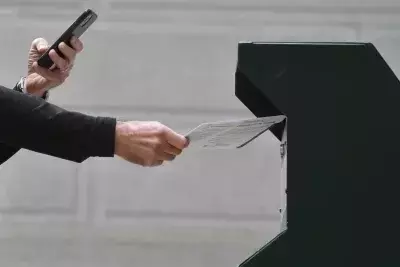
Former President Trump's recent declaration regarding the elimination of mail-in ballots and voting machines has ignited a robust debate, drawing sharp criticism from legal scholars and election integrity advocates. His proposed executive order, aimed at fundamentally altering the American electoral landscape, faces significant constitutional hurdles, as the authority to regulate federal elections is primarily vested in Congress and the states, not the executive branch. This move is perceived by many as an attempt to destabilize confidence in the electoral system and underscores a persistent tension between federal directives and state sovereignty in election administration.
The ambitious plan, unveiled via Truth Social, suggests a sweeping overhaul of current voting practices, which have become increasingly vital for millions of Americans. However, its implementation would necessitate overcoming not only legal challenges but also immense logistical complexities, given the proximity of upcoming primary elections. Experts warn that any such federal intervention would likely lead to prolonged litigation and pose substantial operational challenges for states already preparing for the next round of voting, highlighting the impracticality of radical changes within such a tight timeframe.
The President's Assertions and Constitutional Limitations
Former President Trump recently announced his plan to eliminate mail-in voting and restrict the use of voting machines across the nation, ahead of the upcoming midterm elections. He asserted that these methods are "highly inaccurate," more expensive, and less dependable than traditional paper ballots, although he provided no supporting evidence for these claims. His proposal involves issuing an executive order, currently being drafted by his legal team, to bar states from utilizing these voting mechanisms. This move comes despite his past encouragement for supporters to use mail-in ballots, and it notably targets a voting method more frequently used by Democrats since the 2020 election, especially as many GOP-led states have implemented stricter regulations.
Legal experts, however, firmly contradict the President's assertion of authority, emphasizing that the U.S. Constitution grants Congress, not the President, the power to regulate federal elections. According to legal scholars, the executive branch lacks the independent capacity to issue direct mandates concerning state election procedures. Any substantive changes to the President's legal authority in this domain would require congressional action. Furthermore, legal scholars point to the framers' deliberate design, which decentralizes election power to prevent an overzealous executive from unduly influencing the democratic process, as articulated in historical documents like Federalist 59. This constitutional framework severely limits the President's ability to unilaterally impose such far-reaching electoral reforms, making the proposed executive order unlikely to withstand judicial scrutiny.
Logistical Hurdles and Broader Implications for Electoral Integrity
The practical implications of the former President's proposed electoral reforms are considerable, presenting formidable logistical challenges as midterm primaries rapidly approach. Should an executive order attempt to ban mail-in voting or restrict voting machines, it would almost certainly face immediate and extensive legal challenges, leading to protracted court battles. Even if such an order were to survive initial legal hurdles, states would then be compelled to enact new legislation or fundamentally revise their existing voting protocols on an incredibly tight schedule. This would necessitate a massive reallocation of resources, potentially forcing more citizens to vote in person and requiring states to drastically expand polling place infrastructure, recruit and train a significantly larger contingent of election workers, and overhaul their entire election administration apparatus.
Election integrity advocates and legal scholars view this initiative as more than just an attempt to streamline or secure the voting process; they interpret it as a deliberate effort to sow distrust and undermine public confidence in future elections. Given the former President's past actions regarding the 2020 election results, concerns are heightened that these proposals are aimed at destabilizing the electoral system rather than enhancing its efficiency or fairness. Experts argue that eliminating established voting methods, especially on such short notice, would create immense chaos and potentially disenfranchise voters, thereby compromising the integrity and accessibility of the electoral process. The broader implication is a potential erosion of democratic norms, emphasizing the critical need for robust legal and logistical preparations to safeguard fair and transparent elections in 2026.
